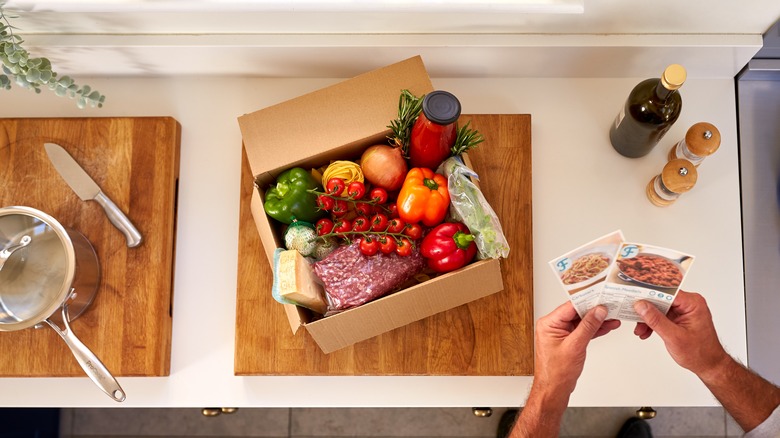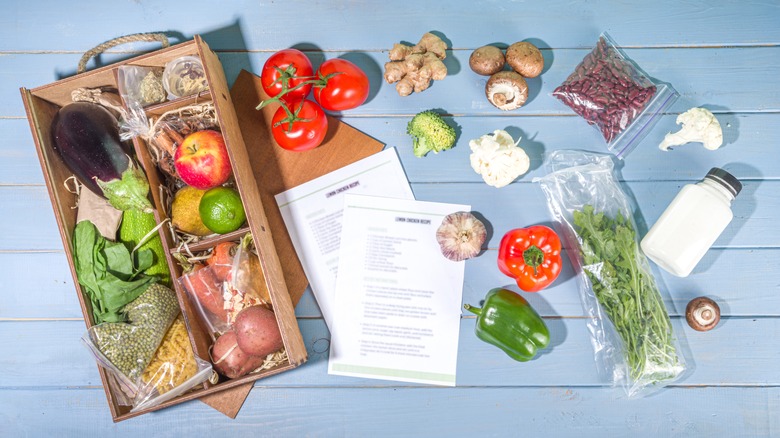Are Meal Kits Environmentally Friendly?
Whether you're a casual cook or a foodie, meal kits are a convenient way to try out different recipes at home, including healthy options that are also delicious. A handy box with all the ingredients you need gets delivered to your door, complete with a recipe and instructions on how to make your often restaurant-quality meal. Not only that, but everything is pre-portioned out. Not only does that save you a trip to the grocery store, where you may or may not be able to find the palm sugar and galangal you need to make a Thai green curry, but you also don't have to buy a whole lot of any one ingredient when you just need a tiny bit.
The downside though is the often excessive packaging involved. Every ingredient comes in its own, often plastic, package. Plus there's the ice pack to keep everything at an appropriately cold (and safe!) temperature. And everything comes in a box. Depending on the frequency of your meal kit delivery schedule, you could end up with nearly as many meal kit boxes piling up as you do Amazon delivery boxes! Which raises a good question — just how environmentally friendly are these meal kits?
Meal kits have less of a carbon footprint than going to the grocery store
According to a recent study, which compares the carbon footprint of several meals when sourced from the grocery store as compared to meal kits, "meal kits have lower average greenhouse gas emissions than grocery store meals," by about 33%. This is despite the fact that meal kits score worse when it comes to packaging. But as Shelie Miller, a senior author of the study, explained to the University of Michigan News, "It's not the packaging that matters most" when it comes to environmental impact, "it's food waste and transportation logistics." Meal kits, with everything pre-portion out, lead to significantly less food waste, which accounts for 30 to 40% of the entire food supply, according to the USDA.
Certain meal kits are also environmentally friendlier than others when it comes to their packaging. Blue Apron claims that around 85% by weight of their packaging is recyclable, reports EcoWatch, while others like Sunbasket and Splendid Spoon offer packaging that is 100% recyclable. Even some plastic bags and ice packs can be recycled if broken into component parts or taken to special recycling programs, according to Green America. There are also more and more plant-based options available, which are also better for the environment (via EcoWatch). So, go ahead and keep ordering those meal kits.

